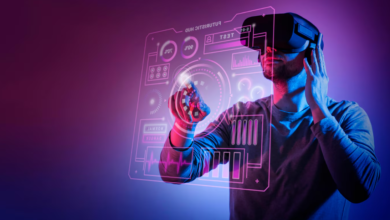The Role of Technology in Building Smart Homes for Disabled Individuals

Smart homes are revolutionizing the way we approach living spaces, particularly for disabled individuals. By integrating advanced technology into the design of disabled house, we can create environments that promote independence and enhance quality of life. These homes utilize various smart technologies that cater to the specific needs of residents, making everyday tasks easier and more manageable. The focus is on creating spaces that meet physical requirements and empower individuals through innovative solutions.
Enhancing Accessibility for Disabled Individuals
Key Technologies Transforming Disabled Housing
Several key technologies are transforming the landscape of disabled housing. These include:
- Home automation systems
- Assistive devices
- Smart sensors
These technologies work together to create an environment that adapts to the needs of disabled individuals, ensuring safety, comfort, and ease of use.
Home Automation: Streamlining Daily Tasks for Greater Independence
Home automation plays a crucial role in building a disabled house that supports independence. By automating various functions—such as lighting, heating, and door locks—individuals can manage their living spaces more efficiently.
- Voice activation: Control devices hands-free.
- Scheduled settings: Automate routines for consistency.
These features reduce reliance on caregivers and foster a sense of autonomy.
Assistive Devices: Enhancing Quality of Life in Smart Homes
Assistive devices are essential in smart homes for disabled individuals. These technologies are designed to support various needs, from mobility to communication.
- Smart wheelchairs: Navigate independently.
- Adaptive keyboards: Improve computer access.
Integrating these devices enhances overall quality of life, allowing individuals to engage more fully with their environment.
IoT and Smart Sensors: Monitoring Health and Safety
The Internet of Things (IoT) and smart sensors play a vital role in monitoring health and safety in disabled housing. These technologies can provide real-time data on:
- Environmental conditions: Monitor temperature and air quality.
- Health metrics: Track vital signs and alert caregivers.
This constant monitoring ensures that individuals remain safe and comfortable, enhancing their overall well-being.
Voice-Controlled Systems: Simplifying Home Management
Voice-controlled systems are invaluable in a smart home environment, particularly for those with limited mobility. These systems allow users to control various aspects of their home through simple voice commands.
- Adjust lighting: Set the mood with a command.
- Change temperature: Ensure comfort without physical effort.
This technology simplifies home management and increases independence for disabled individuals.
Remote Access: Managing Home Functions from Anywhere
Remote access technology enables individuals to manage home functions from anywhere, providing peace of mind for both users and caregivers. With mobile apps and web interfaces, users can:
- Monitor security systems: Ensure safety when away.
- Control appliances: Turn off devices to save energy.
This flexibility enhances convenience and supports a more independent lifestyle.
Customization and Adaptability: Tailoring Smart Homes to Individual Needs
One of the key advantages of smart homes is the ability to customize and adapt technology to meet individual needs. This includes:
- Personalized settings: Tailor lighting and temperature preferences.
- Modular devices: Easily change or upgrade systems.
Such customization ensures that the disabled house evolves with the resident’s changing needs, promoting long-term satisfaction and usability.nhance the living experience in disabled housing.




